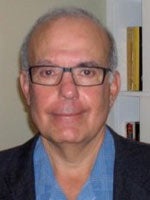The challenges that organized labor faces in the wake of globalization, corporation concentration and technological change has been the subject of much discussion in academia and the media. But the implications of these changes for knowledge and communication workers in particular have received much less focus. That gap leaves unanswered this question: will knowledge, information, and communication workers of the world unite?
The question was explored by Vincent Mosco, professor emeritus of communications at Queen’s University, Canada, at a presentation sponsored by the Labor and Worklife Program at Harvard Law School on September 19. Mosco is the author of “Getting the Message: Communication Workers and Global Value Chains” and other books and articles about the sociology of communication and the political economy of the media.
In her introductory remarks, Elaine Bernard, executive director of the Labor and Worklife Program, said that, unlike some academics, Mosco makes a point to spend time outside the classroom with workers, labor leaders, and other people “who aren’t just trying to imagine the world, but are trying to change it.”
Mosco explained that advances in technology have led to a demand for workers who can wear many hats, and have forced consolidation of tasks in the media and communications industry in particular.
“In journalism, for example, certain jobs used to be performed by a number of workers who were divided by certain uses of technology, which distinguished print journalists from broadcast journalists from IT workers,” he said. “It has now converged into one process where one person is expected to do the job of three or four people.”
To illustrate his point, Mosco explained that when he was interviewed in the past, a journalist arrived at his office accompanied by a cameraperson, a sound person, and perhaps even a producer. Today, it’s rare for more than one person to knock on his office door, because one person can set up the camera, conduct the interview, write the story, edit the video, and put it online.
Mosco discussed not just the convergence of tasks performed by workers, but also the convergence of labor unions representing those workers. He said that, although communication and knowledge unions have yet to do so, unions that have successfully converged have more clout, budget, and ability to organize workers “from the forest to high tech.” Mosco said that, while “bringing together workers form across the divide” can pose challenges when different constituencies have conflicting interests, overall the convergence is beneficial because it allows unions to lobby on a larger scale.
His research now focuses on new union activity in the knowledge worker sector in India and China, especially within the call center and technology publishing industries.
“If work will continue to be shipped offshore, then organizing needs to be transnational,” he said.
The Labor and Worklife Program is Harvard University’s forum for research and teaching on the world of work and its implications for society. Located at the Harvard Law School, the LWP brings together scholars and policy experts from a variety of disciplines to analyze critical labor issues in the law, economy, and society. The LWP also provides unique education for labor leaders throughout the world via the oldest executive training program at Harvard University, the Harvard Trade Union Program, founded in 1942.
